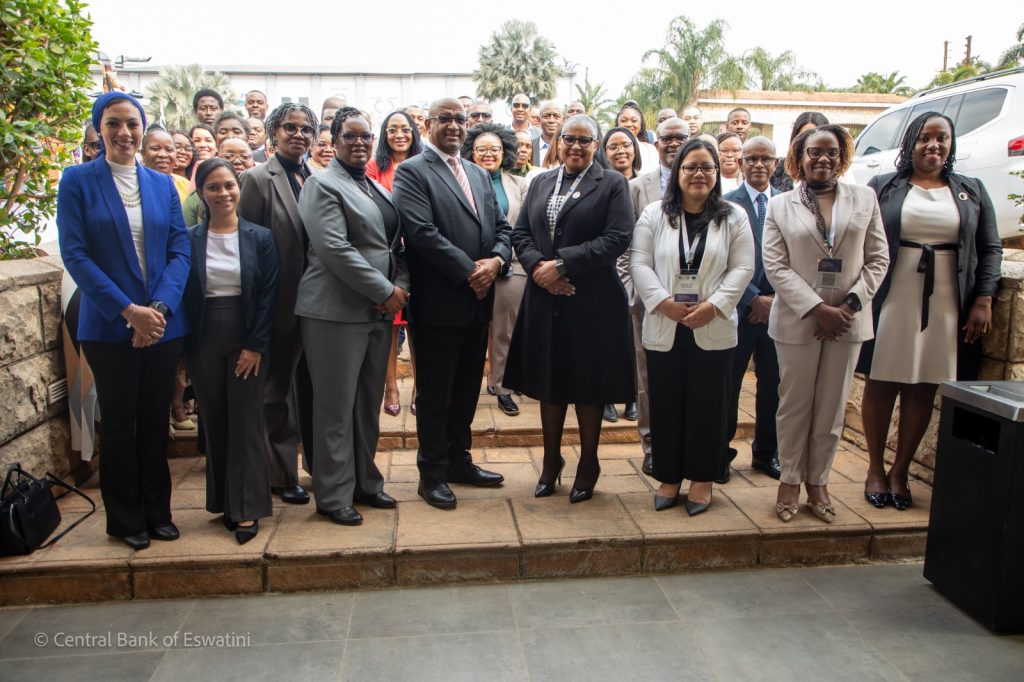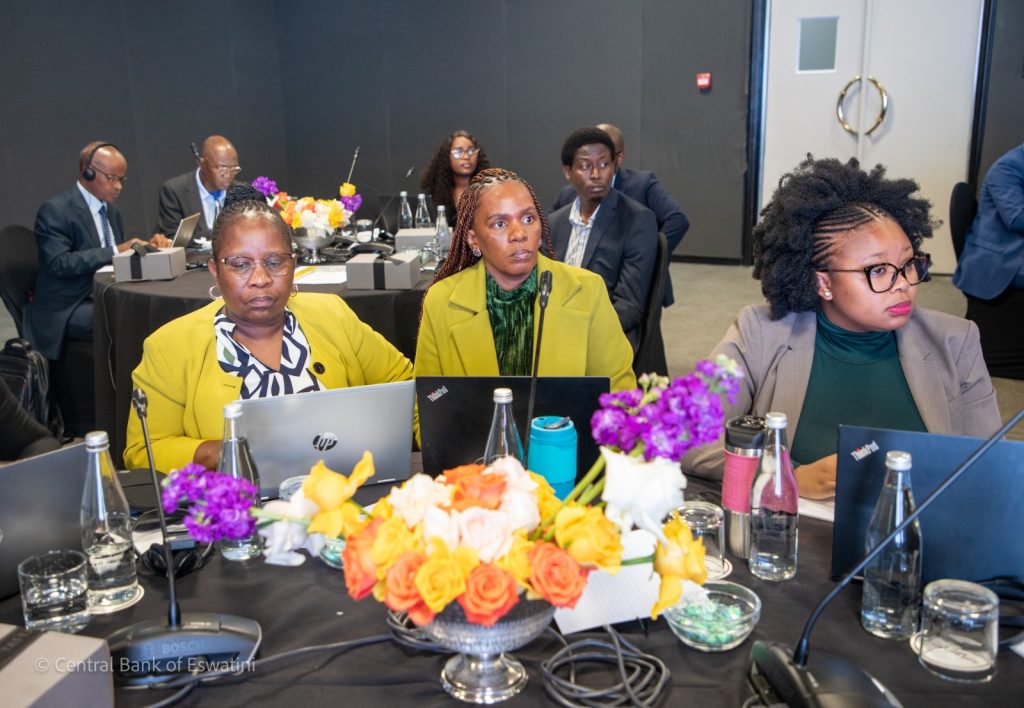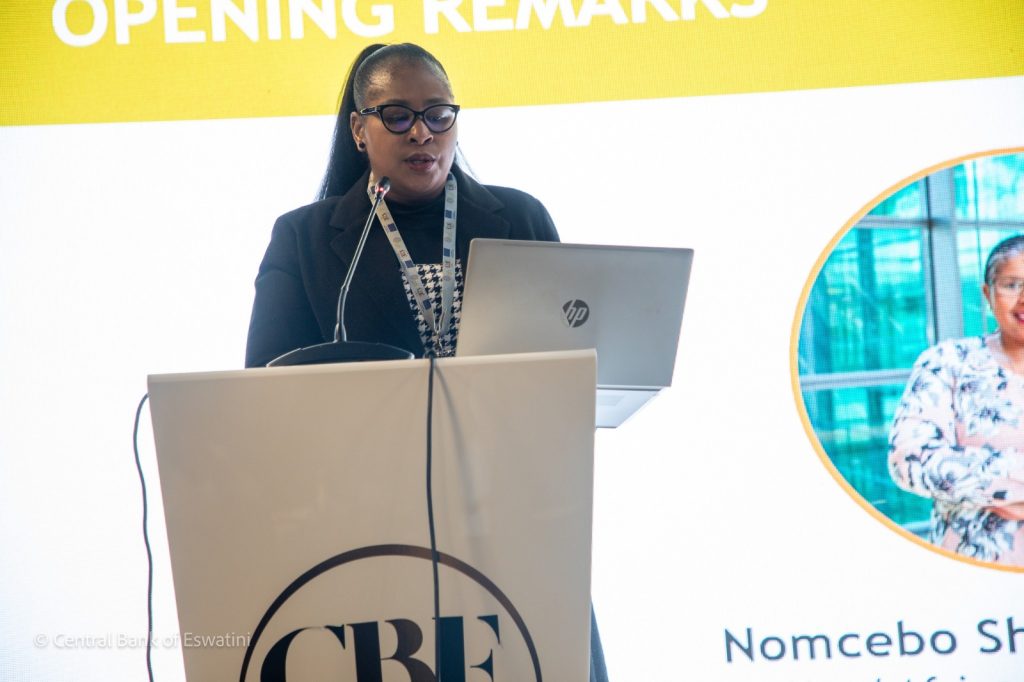
Stakeholders from across Sub-Saharan Africa gathered in Ezulwini this week for a high-level regional training on climate finance access for micro, small, and medium enterprises (MSMEs). The event was hosted by the Central Bank of Eswatini (CBE) in partnership with the Alliance for Financial Inclusion (AFI).
Held at Happy Valley Hotel, the AFI Regional Training on Greening MSMEs and the Role of Regulators brought together regulators, policymakers, and financial sector leaders from African institutions, united by the goal of removing financial barriers that hinder MSMEs from adapting to and thriving in a changing climate.
During the official opening, CBE Governor, Dr. Phil Mnisi, underscored the urgent need to improve financial access for small businesses operating in climate-sensitive environments.
“MSMEs are vital engines of employment and innovation. Yet, despite accounting for 19.3% of banking assets, they contribute only 3.4% to Eswatini’s GDP,” he said. “This mismatch is a clear signal that more support is needed to unlock their full potential and help them become climate-resilient.”

In a strong appeal to fellow regulators, Dr. Mnisi stated: “As regulators, we do need to prioritize Inclusive Green Finance as a way to facilitate the transition to a sustainable economy while building climate resilience among vulnerable groups.”
He further called on financial supervisors across the region to focus on Inclusive Green Finance (IGF), incorporate climate considerations into regulatory frameworks, and support innovative financial products tailored for MSMEs navigating the climate crisis.
Dr. Mnisi highlighted Eswatini’s progress in green finance, citing the Green Finance Taxonomy developed in 2024 in collaboration with the United Nations Development Programme (UNDP).
The taxonomy offers a national framework to classify and monitor green financial flows, allowing financial institutions and investors to support environmentally sustainable activities with clarity and consistency.
The Governor also confirmed that Eswatini had completed a baseline diagnostic study to assess climate change awareness and capacity across economic sectors and to develop a roadmap for greening the operations of the Central Bank and the broader financial sector.
AFI’s Head of Africa Regional Office, Nomcebo Sherron Hadebe, praised Eswatini’s leadership in advancing financial inclusion and green finance, calling the country “a pioneer” within the AFI network.
“Climate change is disrupting our economies and threatening the livelihoods of millions. But within this crisis lies an opportunity to reorient MSMEs towards sustainability and resilience,” she said.
Hadebe emphasized that Sub-Saharan Africa, which contributes less than 4% of global greenhouse gas emissions, faces some of the harshest climate impacts, including rising temperatures, unpredictable rainfall, flash floods, and prolonged droughts. These changes threaten food security, employment, and the very survival of small businesses across the continent.
During the training, participants will explore innovative financial instruments, policy interventions, and supervisory frameworks that can reduce lender risks while increasing access to climate-smart financing.

Experts and peer regulators will share best practices and address challenges such as limited collateral, high transaction costs, and knowledge gaps within the MSME sector.
The regional training also contributes to a broader discussion on financial system reform and climate adaptation, with regulators urged to incorporate climate risk considerations into national financial supervision strategies. Dr. Mnisi called for greater collaboration and more deliberate policymaking.
“Empowering MSMEs as agents of change in building an inclusive and sustainable economy requires concerted efforts from policymakers, financial regulators, financial institutions, and development partners. By implementing targeted interventions and promoting collaboration, stakeholders can facilitate the green transition of MSMEs and support climate resilience and environmental sustainability globally,” he said.
